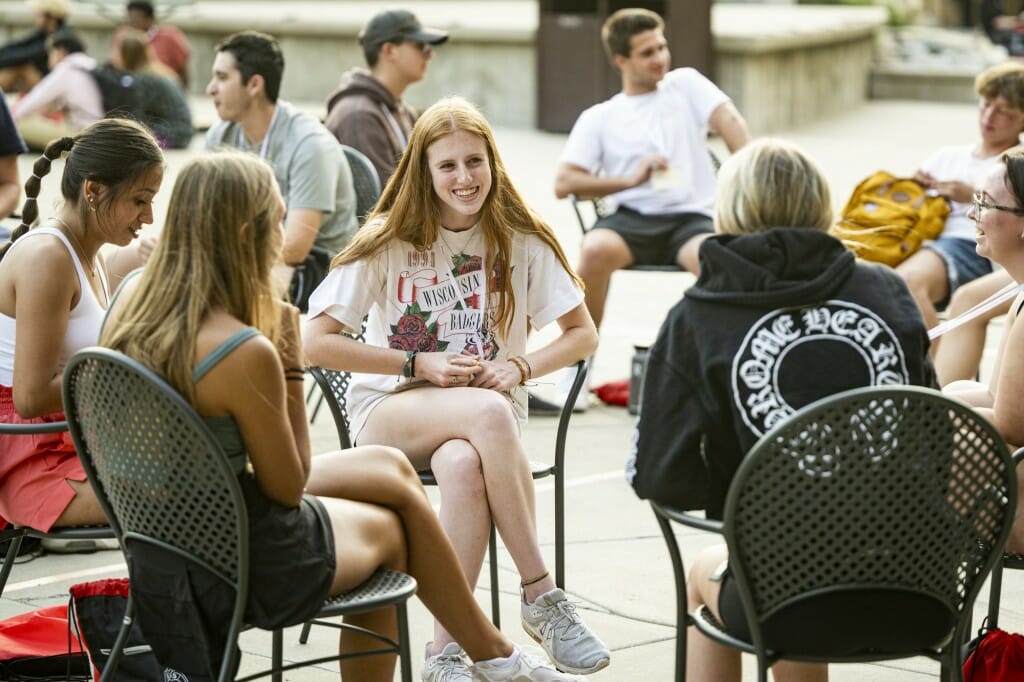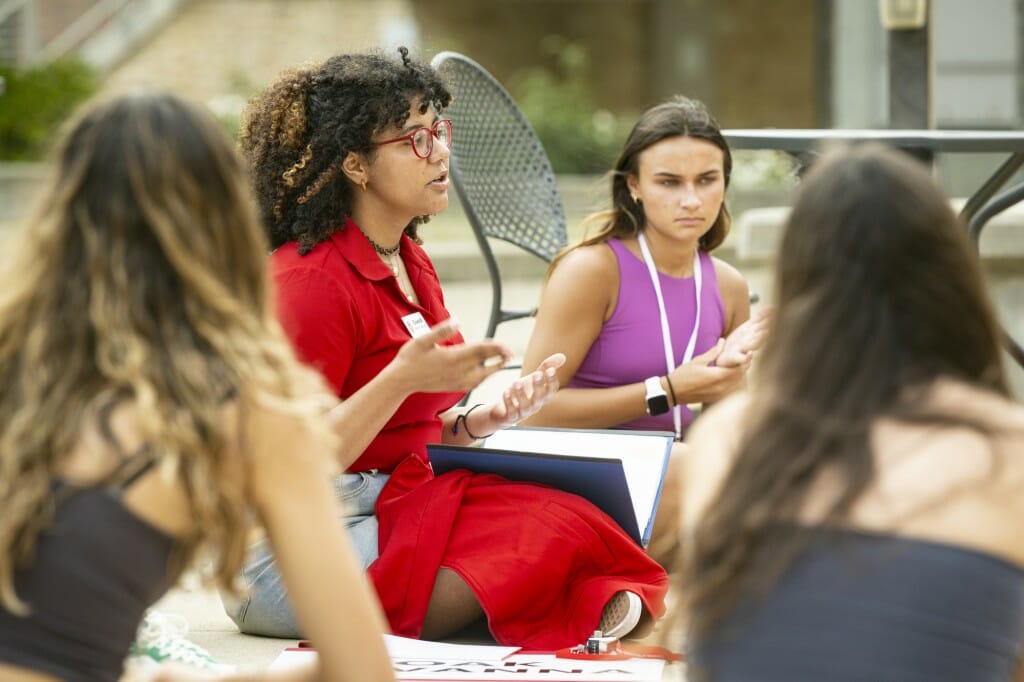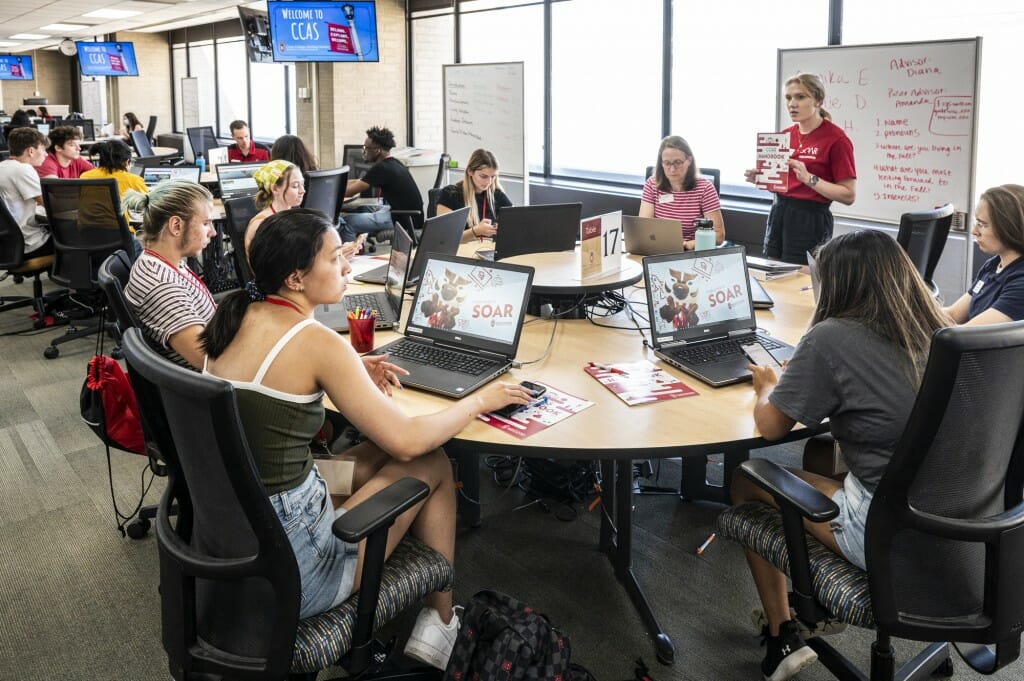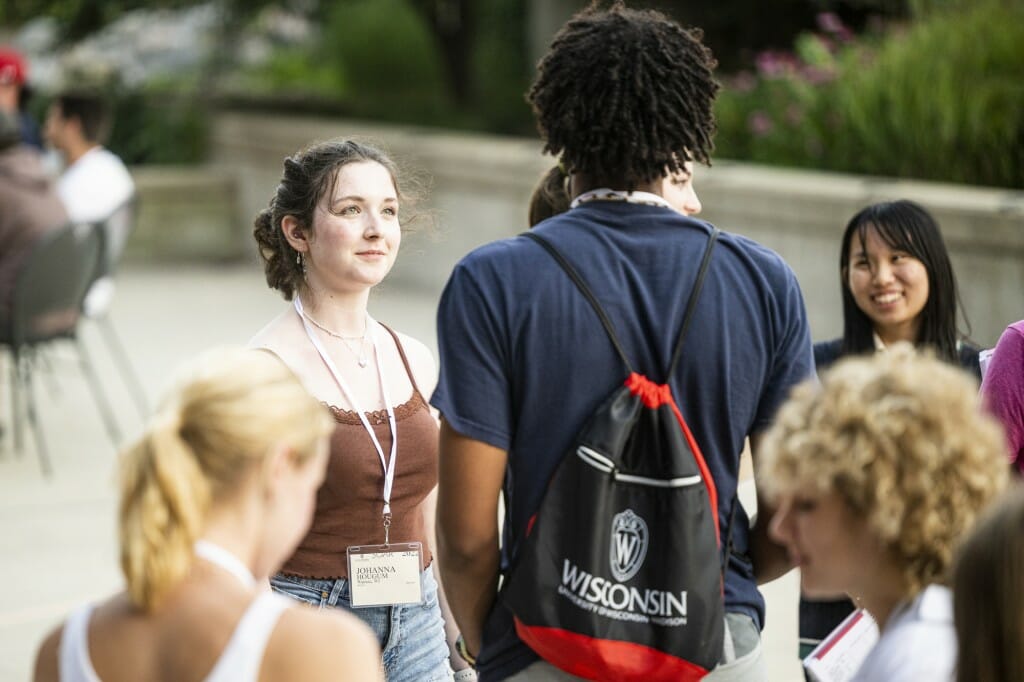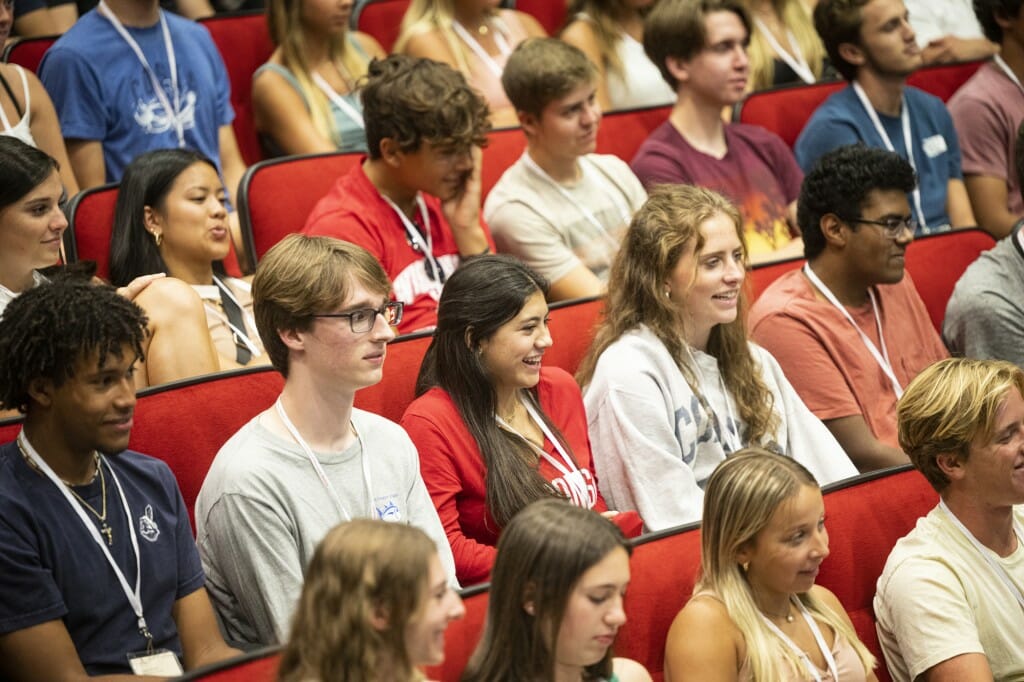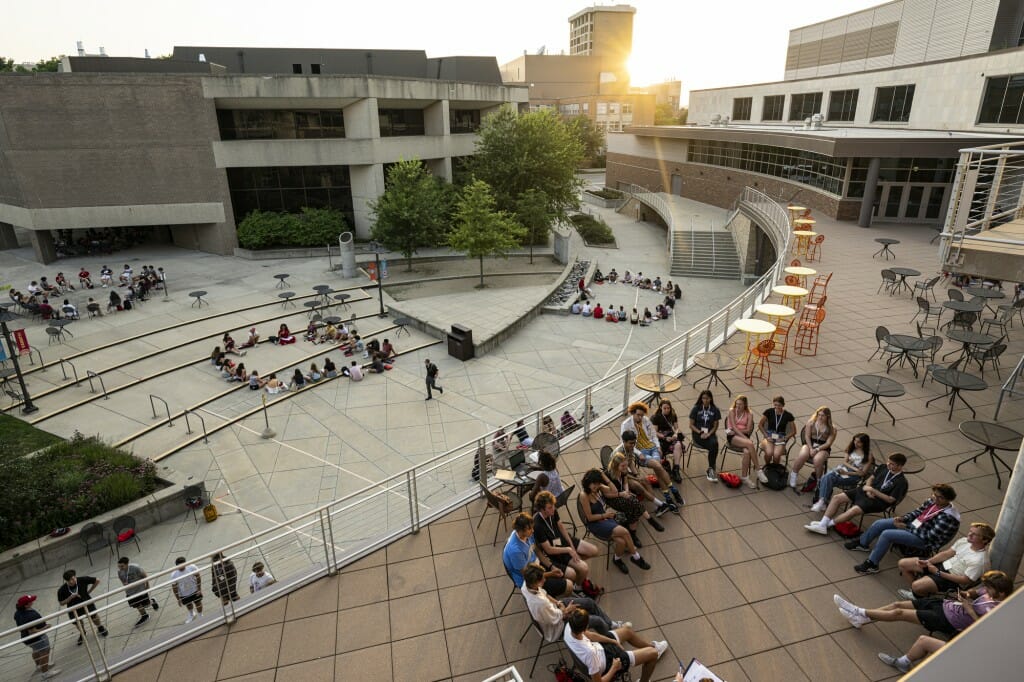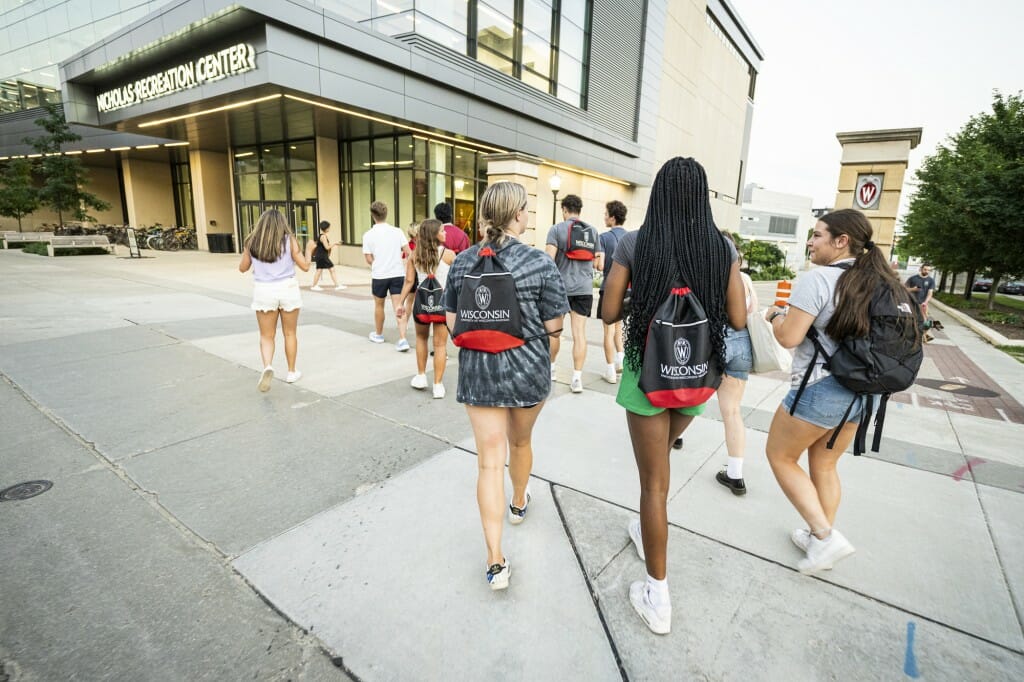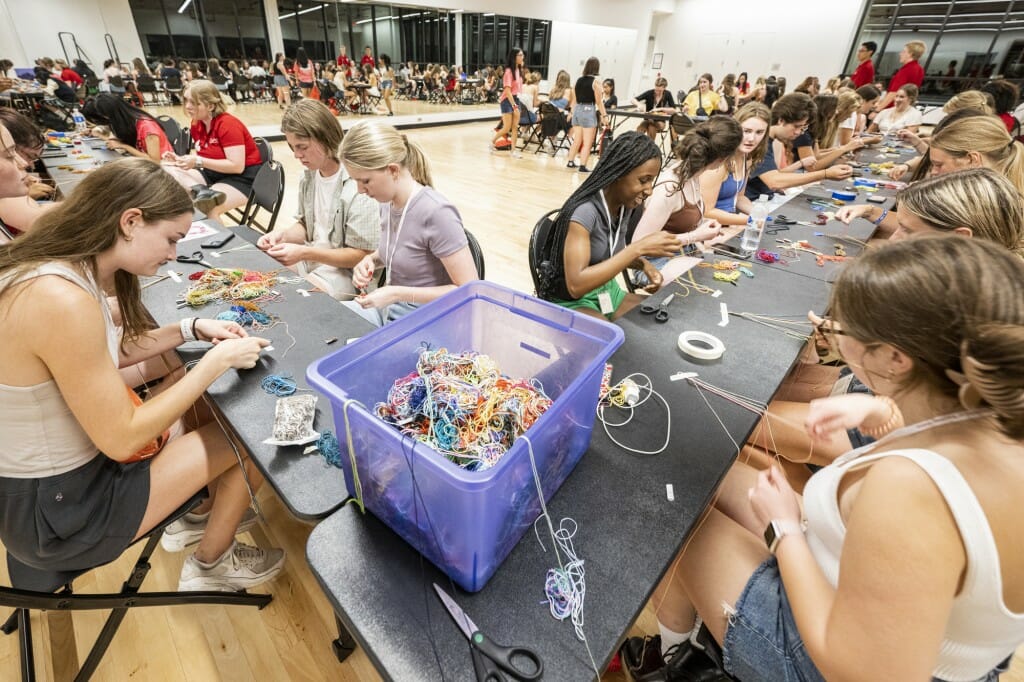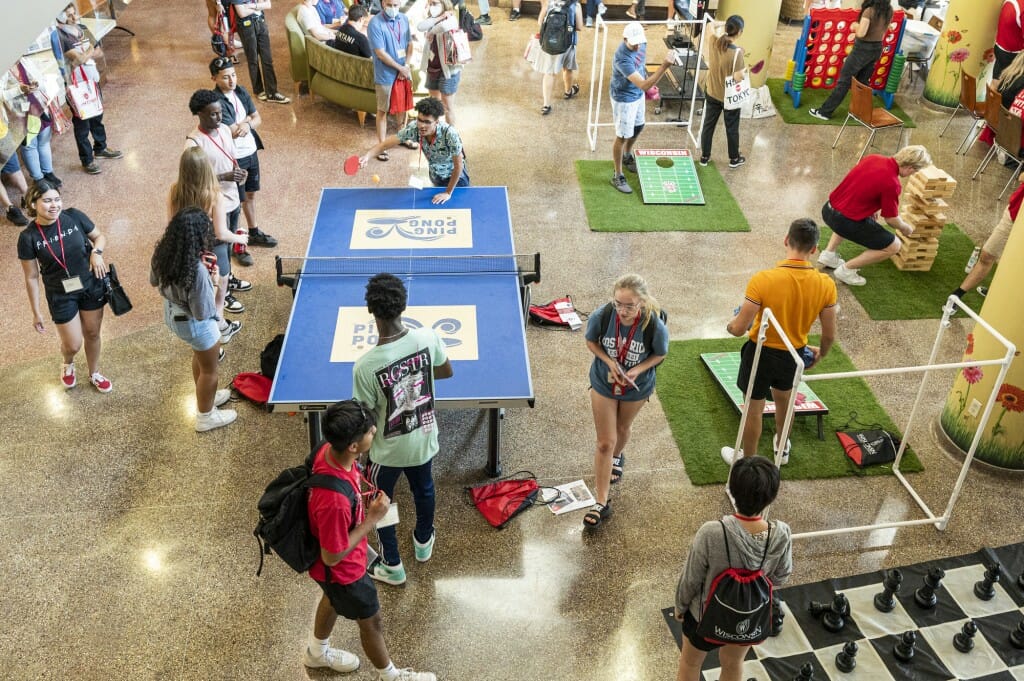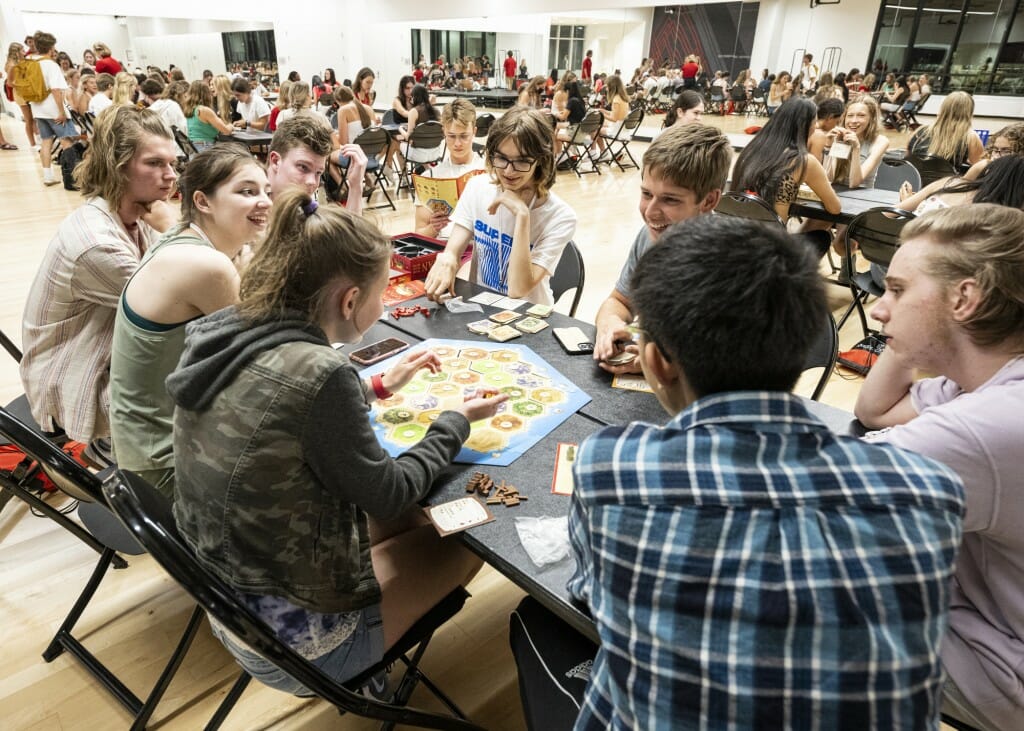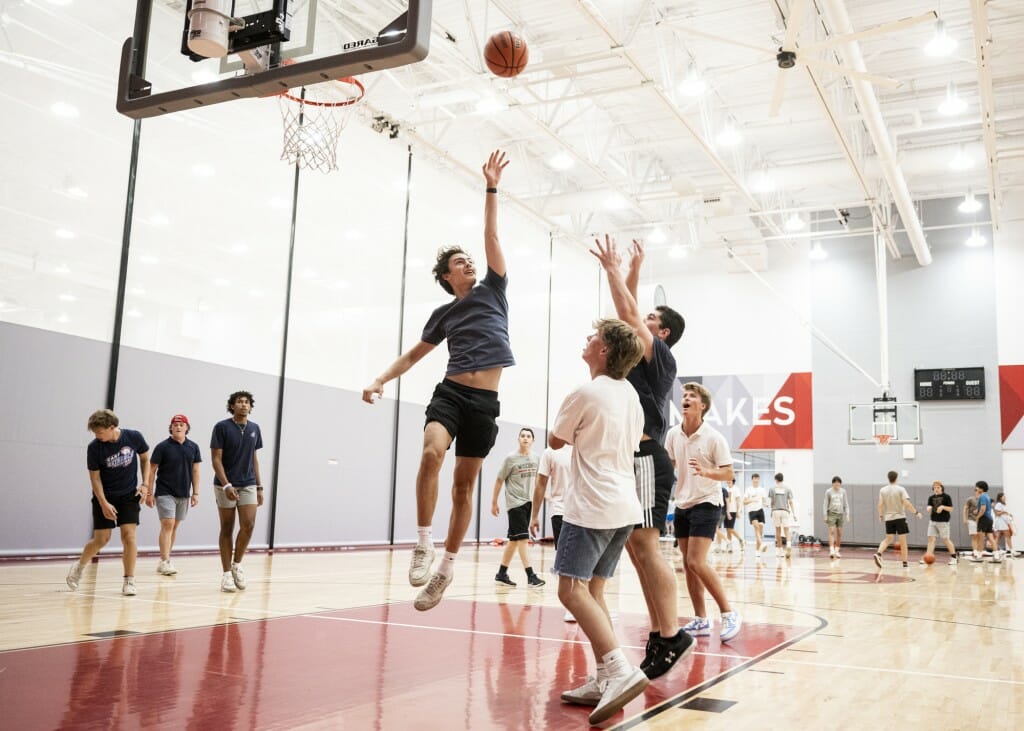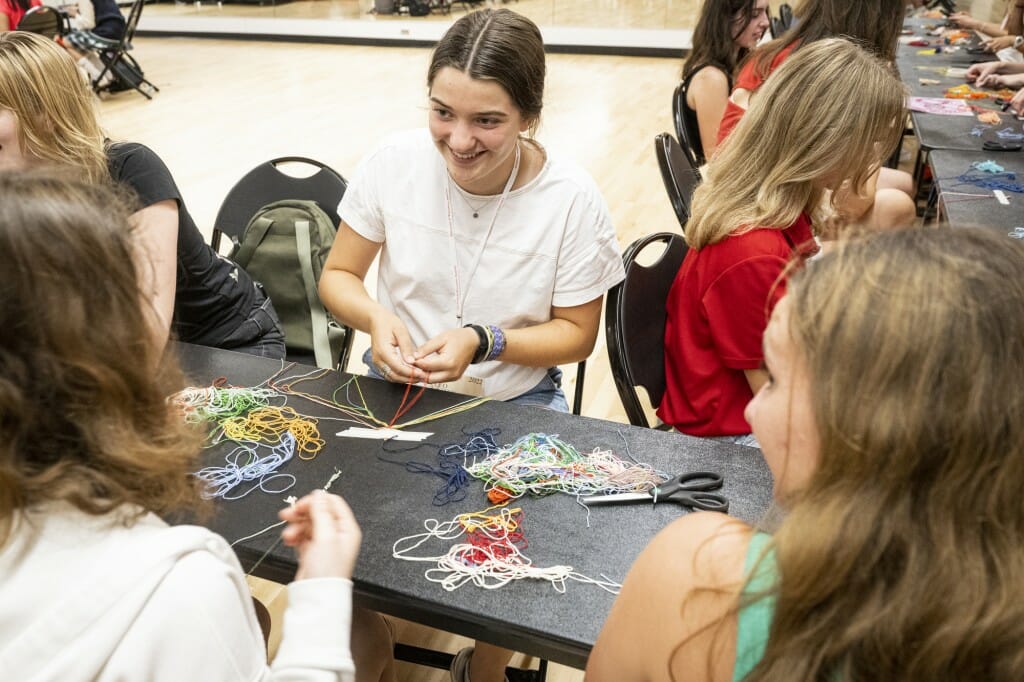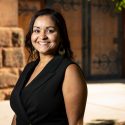SOAR offers in-person orientation again, but virtual components remain
With UW–Madison’s Student Orientation, Advising and Registration (SOAR) program back in-person for the first time since 2019, some students are enjoying the chance to tour campus, meet other students and get advice from upperclassmen.
SOAR, which stands for Student Orientation, Advising, and Registration, is a day-and-a-half long program that all incoming students complete before starting classes. Students learn about campus life, receive academic advising, and enroll in classes.
“We’ve been getting good feedback from parents and students,” said Katie Cummings, communications coordinator for the Center for the First-Year Experience. “They’re just so happy to be here, after two years of not being able to do things like this.”
But lessons were learned during the pandemic, and some elements of SOAR remain available virtually because it makes the program more accessible to all. “We learned that online SOAR works better for some people than others,” she said. This summer, SOAR is online for all transfer students and international students.
Before the pandemic, SOAR was held entirely in-person on campus.
For the past two years, though, all of SOAR’s programming – student life info sessions, academic advising, and registering for classes – have been held online, because of the COVID-19 pandemic.
Students completed online courses through Canvas about student life and academic advising. There were also a number of recorded videos from campus leaders, and Instagram Live events from current students to help answer incoming students’ questions.
This year, nearly 10,000 students will attend SOAR on campus over the course of the summer.
The virtual component makes SOAR accessible to more students, administrators have realized. It’s being offered virtually this summer for transfer and international students.
Jen Walsh, manager of academic advising of SOAR, said SOAR academic advising is happening both in-person and online, to accommodate all students’ needs.
Incoming students also meet with peer advisors, who are current UW students trained to work with SOAR students.
“Peer advisors bring their own lived experience as a UW–Madison student to each advising interaction, and are essential to the SOAR Advising process,” Walsh said.
Walsh said in-person SOAR is valuable for incoming students. “It’s a way for new students to experience campus during the summer, make connections with classmates and staff, and learn more about being a student at UW–Madison,” she said.
Cummings said some students prefer SOAR solely for enrolling in their classes, and may be less interested in the many welcome activities SOAR has to offer.
Others prefer in-person. “Some students really value the in-person welcome aspect and want that to be a part of their SOAR… like meeting new friends, and getting to go to the fun evening activities,” Cummings said.
Students can participate in numerous recreational activities on campus. This year, for the first time, evening activities can take place in the new Nicholas Recreation Center.
“They get to explore a really cool new building on campus that will be accessible to them once they move to campus,” Cummings said.
With in-person SOAR, “Students get to explore campus, and get to know student peers and leaders,” she said, “I think it helps you learn you made the right choice, when you’re on campus.”
Throughout the summer, current UW students support SOAR students by running small groups, peer advising, and ensuring that all operations run smoothly. Topic areas include inclusion, involvement, Wisconsin Experience and financial aid, among others. Campus partners such as University Health Services and Housing give presentations.
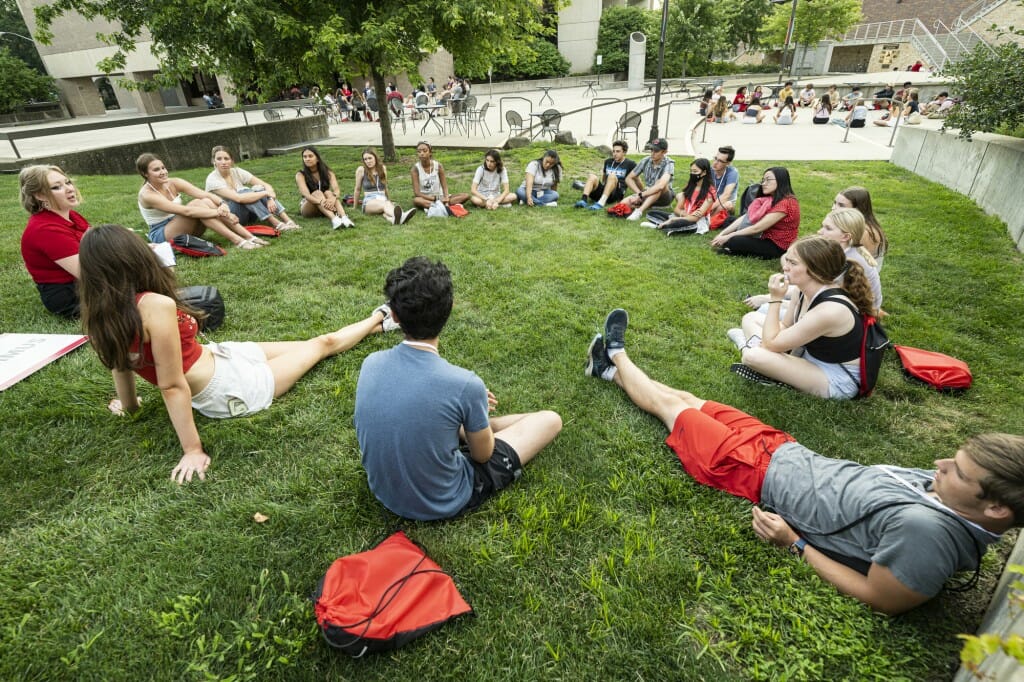
SOAR’s small group discussions are relaxed and informal, allowing the students tp ask questions and share thoughts. Photo: Bryce Richter
SOAR New Student Leader Zawadi Hester shared her experience: “[Being] an NSL entails a lot of mingling and making students and families feel comfortable,” Hester said, “it’s also about being a resource for students, so they can ask us more personal questions.”
NSLs also run and facilitate small groups for students.
“With my role, I can answer questions about student life, and things that I had questions about when I came to UW,” said Danielle Karinsky, another NSL. “It’s great to have a real person to be able to answer those questions.”
Karinsky added: “I think it’s really helpful to see first-year students making connections with other people, and to get more excited to come to Madison.”
Tags: student affairs

